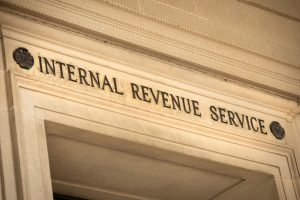Do you remember how you first learned about taxes and how they could impact your finances?
For too many people, learning about taxes comes through someone’s first time having to file taxes for their very first job. Or, even worse, they learn some lessons too late after improperly filing, finding out they were supposed to be paying quarterly estimated taxes, or reporting income earned from side hustle when the IRS sends them a notice.
If your understanding of taxes was less than sufficient when you first started paying them, that doesn’t mean your kids have to learn the hard way, too. It’s a lot easier than you think to teach your children the basics of taxes and prepare them for their financial future.
If you’re wondering how to start teaching your kids about taxes to set them up for success, then check out a few of these helpful tips we’ve put together from experience:
Make the concept more applicable to their lives
Kids tend to ask a lot of questions when they’re confronted with a new rule or concept. In this case, it’s best to mitigate this by explaining what taxes are and what purpose they serve before you dive into the nitty-gritty of, say, the alternative minimum tax.
Try relating your explanation directly to places and services they’ve already experienced. For instance, point out parks, libraries, schools, roads, and bridges, and other government-funded public goods or services. This will help them draw a connection between those things and what their tax dollars are going toward.
Get them to understand the basic concept of taxes—everyone chipping in for the public good—and you’ll be on your way to helping your kids better understand why correctly filing their taxes is such an important life lesson.
Explain the different types of taxes and how correctly filing makes a difference
Understanding a concept is one thing, but at some point, you’ll need to get down to teaching your kids about the types of taxes they can expect to encounter.
A simple way to teach even young children about taxes is by pointing out the shelf price of an item in the store and then showing them the full cost of the item on your receipt. If an item is priced at $4.99, but in reality costs $5.05, you can teach them about taxes and calculate the true cost of their purchases.
For older children, you may want to show them a breakdown of your paycheck to better explain concepts like the FICA tax for Social Security and Medicare or give them an idea of how much money is withheld from each paycheck.
You can even try showing them a tax return and some of the various taxes, credits, and deductions on yours. Most kids probably won’t want to go through your tax return line by line, but introducing them to concepts like long-term and short-term capital gains taxes early on can pay off big time (literally) down the road.
Collect a “tax” on allowance, but spend it together on something fun.
This method requires some more effort on the part of the parents, but it’s a good way to drive home the reality of taxes.
Tell your child they’re getting a raise on their allowance—but that an income tax now applies. Deduct a percentage of the new allowance rate each week or month and keep it under your control. Then, after the amount grows large enough, spend it together on something fun that you know your child will like.
Sure, it doesn’t exactly replicate the spending methods of the federal government, but there will be plenty of time for them to learn that aspect later on. For now, it’s enough to show them how taxes work and what they can expect when they get a job later in life.
Use the opportunity to teach them about responsibility
There’s a reason that April 15th* is etched into every tax-paying American’s mind. Filing a tax return is a big responsibility, yet many don’t learn about a tax return or how to file one until they urgently need to do it.
Don’t let that happen to your children. Filing today is much easier than it was pre-internet, but it’s still a stressful time for many people. Make sure your kids understand how and why they need to file a return each year. If they’re old enough, you can explain to them how you do it and why. If you have a friend or relative who’s a CPA, use that connection to explain that some people choose to have an expert handle their taxes for them.
Fortunately, your kids are years away from having to worry about April 15th. However, if you’re stressed about filing your taxes, then contact AG Fintax today and let our dedicated tax pros take care of you and your return.
*Please note that in 2021, the tax filing deadline is May 17th.




